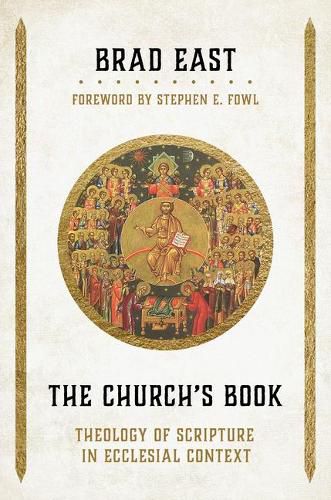Readings Newsletter
Become a Readings Member to make your shopping experience even easier.
Sign in or sign up for free!
You’re not far away from qualifying for FREE standard shipping within Australia
You’ve qualified for FREE standard shipping within Australia
The cart is loading…






What role do varied understandings of the church play in the doctrine and interpretation of Scripture?
In The Church’s Book, Brad East explores recent accounts of the Bible and its exegesis in modern theology and traces the differences made by divergent, and sometimes opposed, theological accounts of the church. Surveying first the work of Karl Barth, then that of John Webster, Robert Jenson, and John Howard Yoder (following an excursus on interpreting Yoder’s work in light of his abuse), East delineates the distinct understandings of Scripture embedded in the different traditions that these notable scholars represent. In doing so, he offers new insight into the current impasse between Christians in their understandings of Scripture–one determined far less by hermeneutical approaches than by ecclesiological disagreements.
East’s study is especially significant amid the current prominence of the theological interpretation of Scripture, which broadly assumes that the Bible ought to be read in a way that foregrounds confessional convictions and interests. As East discusses in the introduction to his book, that approach to Scripture cannot be separated from questions of ecclesiology–in other words, how we interpret the Bible theologically is dependent upon the context in which we interpret it.
$9.00 standard shipping within Australia
FREE standard shipping within Australia for orders over $100.00
Express & International shipping calculated at checkout
What role do varied understandings of the church play in the doctrine and interpretation of Scripture?
In The Church’s Book, Brad East explores recent accounts of the Bible and its exegesis in modern theology and traces the differences made by divergent, and sometimes opposed, theological accounts of the church. Surveying first the work of Karl Barth, then that of John Webster, Robert Jenson, and John Howard Yoder (following an excursus on interpreting Yoder’s work in light of his abuse), East delineates the distinct understandings of Scripture embedded in the different traditions that these notable scholars represent. In doing so, he offers new insight into the current impasse between Christians in their understandings of Scripture–one determined far less by hermeneutical approaches than by ecclesiological disagreements.
East’s study is especially significant amid the current prominence of the theological interpretation of Scripture, which broadly assumes that the Bible ought to be read in a way that foregrounds confessional convictions and interests. As East discusses in the introduction to his book, that approach to Scripture cannot be separated from questions of ecclesiology–in other words, how we interpret the Bible theologically is dependent upon the context in which we interpret it.